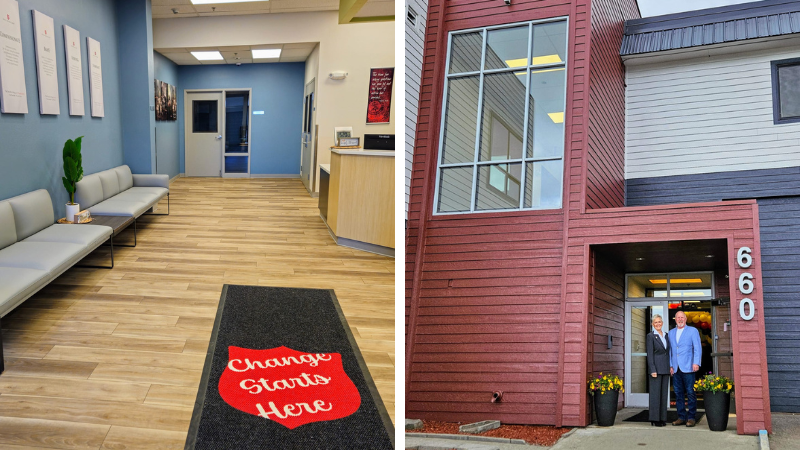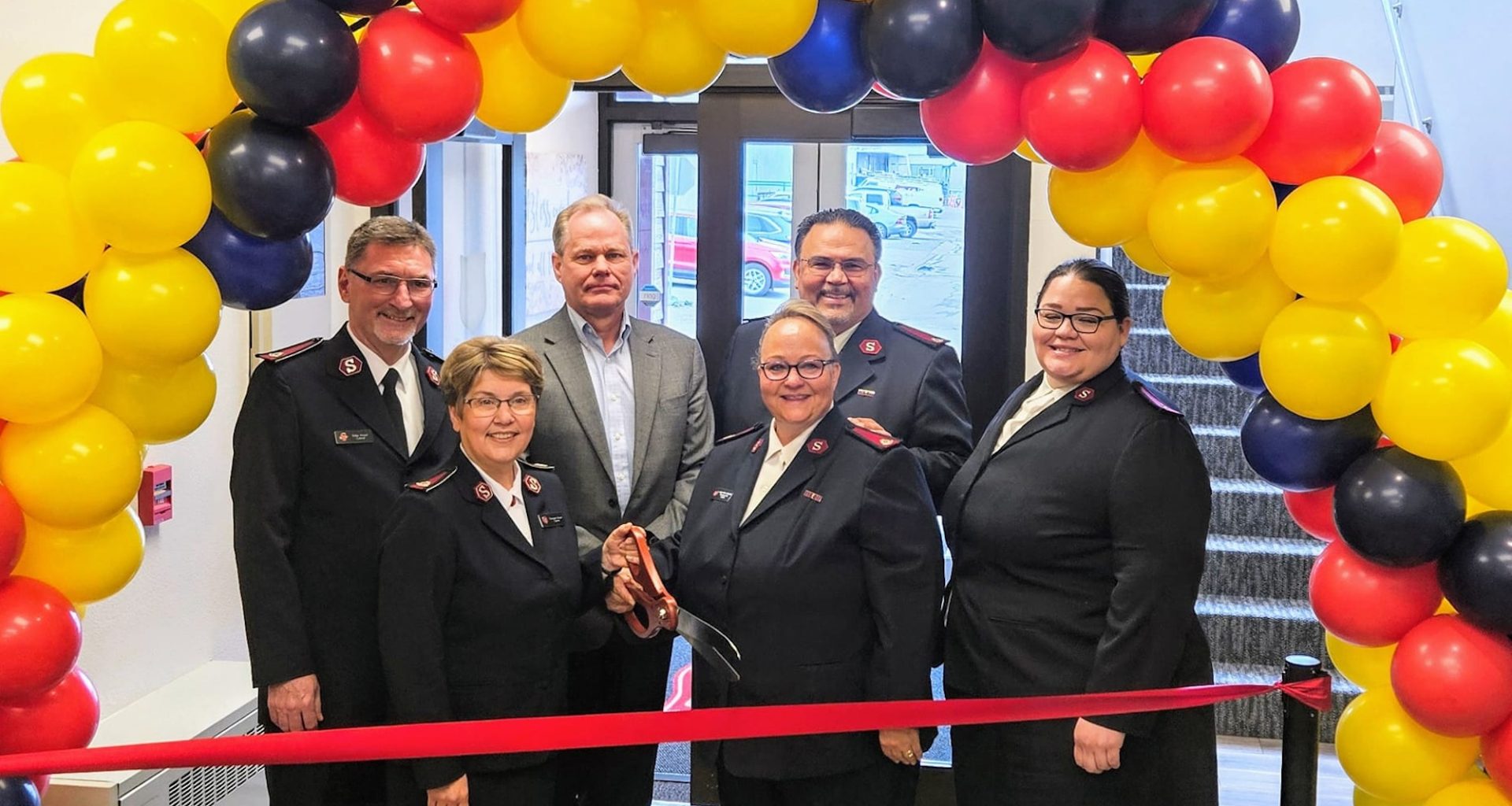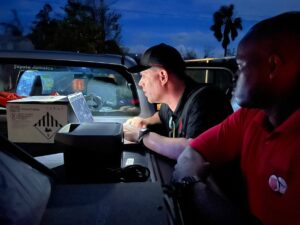Anchorage Social Services Director Captain Denice Delgado has seen an uptick in the number of people experiencing addiction, and she said the proof is in the statistics.
According to the Alaska Department of Health’s 2023 Alaska Scorecard, the state has the 10th highest rate of adult binge drinking in the U.S. And in 2021, the second highest age-adjusted rate of alcohol-induced mortality in the nation.
“There are a lot of people who are turning to alcohol and drugs,” she said. “I’ve seen people just hurting to fulfill themselves for some semblance of that hope. And I know it as Jesus…People are looking and they’re hungry and they’re searching for something tangible.”
And that’s the hope of the newly expanded Clitheroe Center in midtown Anchorage, which opened its doors in April to men seeking rehabilitative treatment.
The facility is a nationally accredited substance use disorder and co-occurring/dual diagnosis residential treatment center and has both American Society of Addiction Medicine (ASAM) level 3.5 intensive treatment and level 3.1 low-intensity treatment—levels individuals are assessed for when they need rehabilitation services.
“We’re only the second one in the city to offer the 3.1 level of care,” Delgado said. “So it’s huge.”
Alaskans have needed “substance misuse and mental health services above national averages” for many years, according to the 2023 Alaska Scorecard. Yet, the report, which examines health outcomes of Alaskans receiving services, claims the state has “struggled to deliver a continuum of care” that meets these needs.
“We want to make sure that the people that we come in contact with are leaving better than they came.”
Anchorage Social Services Director Captain Denice Delgado
Previously, Delgado said the Clitheroe program had been operating at the high-intensity level 3.5 for years.
“There was nothing really in that midpoint,” she said of the 3.1 lower-level intensity. “It’s like handholding to bring them from high intensity as a step down before you get to outpatient…so for the first time ever, Clitheroe has a full continuum of care minus detox.”
Delgado said with the new space, the program will have 60 beds available, up from 42 in the previous Point Woronzof location. Existing clients participating at the Point Woronzof location transferred to the new location upon its opening.
The Clitheroe Center takes over the space that formerly housed The Salvation Army Anchorage Adult Rehabilitation Center. A grant of $4.7 million from the state helped make the necessary renovations.
“We are excited to share the great improvements that have been made to the Clitheroe Center building and look forward to the continued good work that will happen inside these walls to assist men in their addiction recovery efforts,” said Alaska Divisional Commander Major Henry Graciani. “We are glad to be able to expand our capacity to help even more individuals seeking a fresh start.”

The hope is for a fresh start to lead to a new life—the 3.1 program affords clients with the opportunity to access additional components of the continuum of care, including continued counseling and support services.
“We want to make sure that the people that we come in contact with are leaving better than they came,” said Delgado.
It all builds off the work of Salvation Army Major Cyril “Jack” Clitheroe, who initially began helping those with alcoholism by providing spiritual guidance out of his garage.
“As times have changed, it’s expanded to what is currently needed,” Delgado said.
The new Clitheroe Center fits into The Salvation Army’s wider Clitheroe program, which includes a level 3.5 intensive treatment for women and a level 2.5 outpatient program. Additionally, in 2017, The Salvation Army was awarded a contract with the Alaska Department of Corrections to provide Substance Abuse and Treatment Services (SATS) through the Clitheroe program to incarcerated individuals with addiction at Goose Creek, Hiland Mountain and the Anchorage Complex correctional facilities.
SATS participants who have a history of opiate-specific addiction can also take part in the Medication Assisted Treatment (MATr) program, which uses the drug Vivitrol, a non-addictive opioid blocker, to assist alongside intensive counseling services.
And under the Alaska Medicaid 1115 Behavioral Health Demonstration Waiver (1115 Waiver), Delgado said The Salvation Army can now bill for Medicaid and provide more services.
“The Salvation Army has been in Alaska since 1898, and we’re continuing to be of service based on what the city needs,” she said, “and where we can step in and help.”
Do Good:












